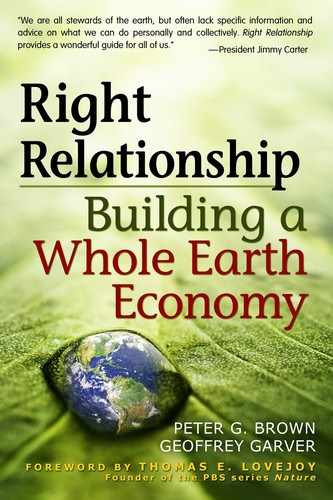About the Moral Economy Project
THE QUAKER INSTITUTE FOR THE FUTURE (QIF) launched the Moral Economy Project in 2005 to address Friends’ concerns about the human prospect in a world of unbridled growth and increasing ecological degradation. QIF seeks to help generate systematic insight, knowledge, and wisdom that can inform public policy in ways that will enable us all to live more fully in “the virtue of that life and power” that leads us to treat every human being, each community of life, and the whole earth as manifestations of the Divine. QIF aims to enhance Friends’ understanding on issues of critical importance for the future of the earth’s life communities, and to help bring this understanding into corporate witness and public discourse on public policy for the common good.
The vision of the Moral Economy Project (MEP) is that the global political-economic order shifts from one of unrestrained economic growth, ecological degradation, and social inequity to one that preserves and enhances social and ecological well-being. This is a vision of right relationship with the commonwealth of life. A key part of this vision is global and local governance that is grounded in a coherent ethical and scientific foundation and that fulfills key functions: a comprehensive understanding of the ecological limits on the human economy, a system to protect global commons, a set of global rules that maintain the economy within ecological limits, and an effective global system of enforcement and rule of law.
The MEP’s mission is to engage in dialogue and action toward development and implementation of ideas for forms of governance needed to steer the global political and economic order toward right relationship with life’s commonwealth.
The Quaker Institute for the Future sponsored, and was pleased to support, the team project that resulted in this volume. QIF saw the book’s special merit in clearly identifying the great crisis of our time and offering principles to be applied in response. Its findings contribute to an ongoing dialogue process that needs to engage public policy professionals as well as a broad range of citizens. While the views expressed in this book are those of the authors, the work is endorsed by QIF’s board of trustees, which is united in its sense of urgency about advancing dialogue toward prompt critical action needed to rectify the growing incoherence between the human economy and the integrity of the earth’s ecological and social systems.
More information on the Moral Economy Project is available at www.moraleconomy.org.
